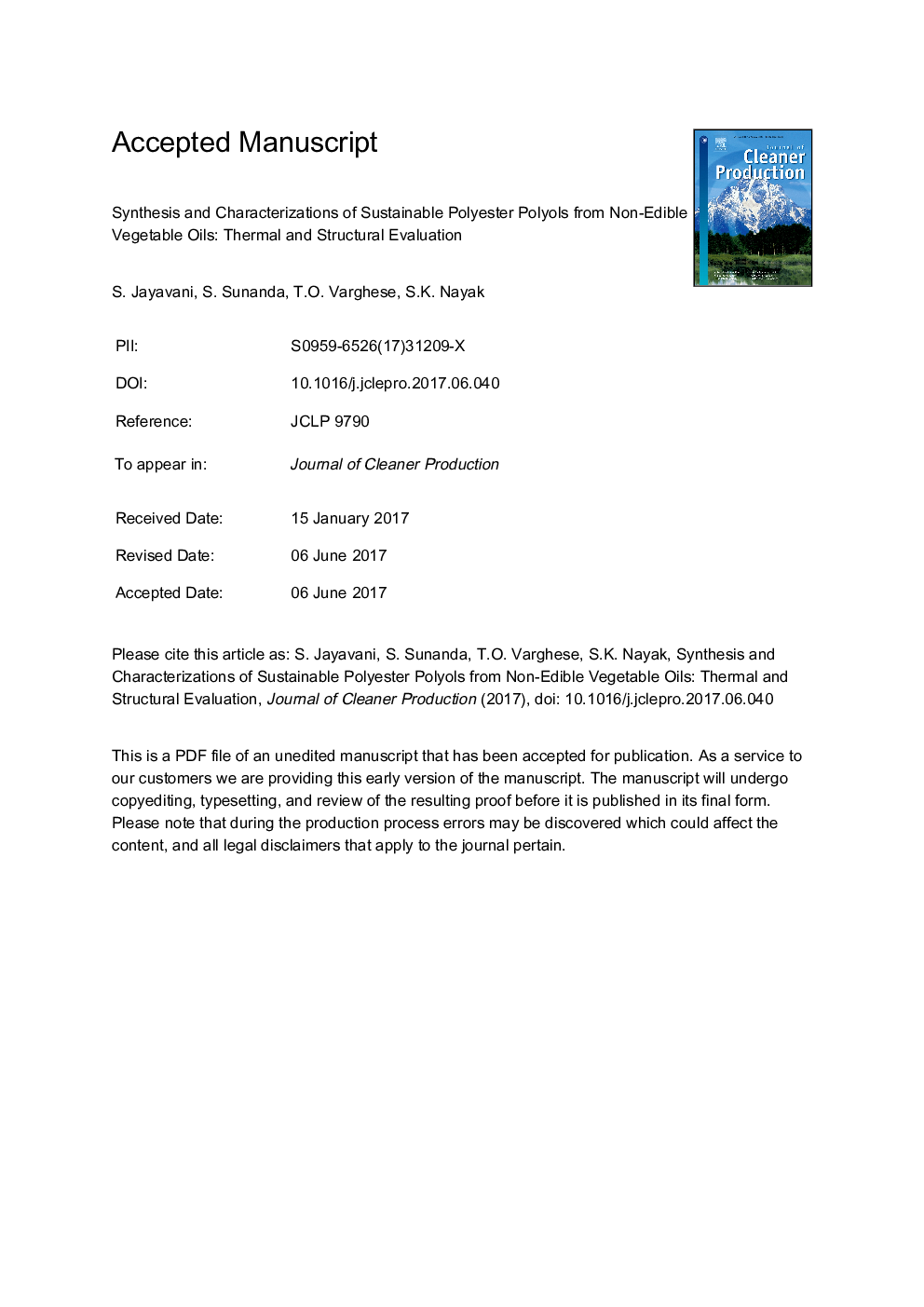| Article ID | Journal | Published Year | Pages | File Type |
|---|---|---|---|---|
| 5479391 | Journal of Cleaner Production | 2017 | 41 Pages |
Abstract
Vegetable oils are extensively used as a renewable raw material for the synthesis of polymers. These oils are transformed into polyol by different techniques. Among these, glycerolysis is an eco-friendly and widely used method for the production of polyol. In this process, solvent free glycerolysis of two non-edible vegetable oils, such as Chaulmoogra oil (C-Oil) and Alexandrian Laurel seed oil (A-Oil) was performed. An environment-friendly heterogeneous base catalyst, CaO was used for the transesterification reaction. The physico-chemical properties of the oils and bio-polyols (C-Polyol and A-Polyol), such as hydroxyl number, acid number, and density were determined. The hydroxyl value was found to be 189 and 200Â mg KOH/g for C-polyol and A-Polyol, respectively. The acid number of the oils was reduced after the glycerolysis. The formation of polyols was confirmed by Fourier Transform Infrared Spectroscopy (FTIR), Nuclear Magnetic Resonance spectroscopy (1H and 13CNMR), and Gel Permeation Chromatography (GPC). Thermal characteristics of vegetable oils and the synthesized bio-polyol were assessed by Differential Scanning Calorimetry (DSC) and Thermogravimetric Analysis (TGA). It was found that the synthesized polyols can be used for the production of biobased polymers, explicitly polyurethanes, polyesters, and epoxy.
Related Topics
Physical Sciences and Engineering
Energy
Renewable Energy, Sustainability and the Environment
Authors
S. Jayavani, S. Sunanda, T.O. Varghese, S.K. Nayak,
